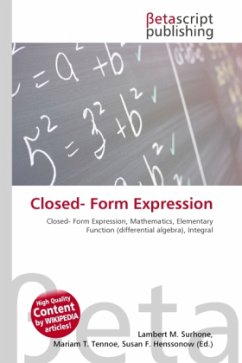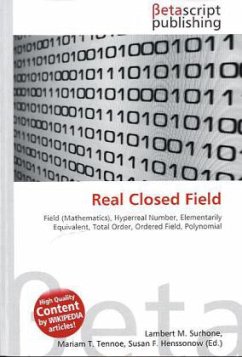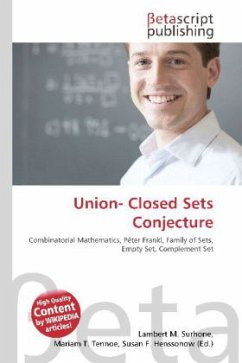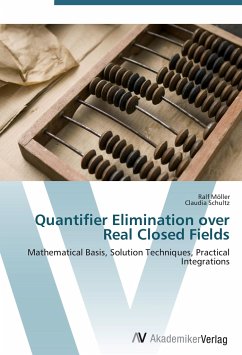
Closed- Form Expression
Versandkostenfrei!
Versandfertig in 6-10 Tagen
30,99 €
inkl. MwSt.

PAYBACK Punkte
15 °P sammeln!
High Quality Content by WIKIPEDIA articles!In mathematics, an expression is said to be a closed-form expression if, and only if, it can be expressed analytically in terms of a bounded number of certain "well-known" functions. Typically, these well-known functions are defined to be elementary functions constants, one variable x, elementary operations of arithmetic (+ × ÷), nth roots, exponent and logarithm (which thus also include trigonometric functions and inverse trigonometric functions). By contrast, infinite series, integrals, limits, and continued fractions are not permitted. Indeed, by...
High Quality Content by WIKIPEDIA articles!In mathematics, an expression is said to be a closed-form expression if, and only if, it can be expressed analytically in terms of a bounded number of certain "well-known" functions. Typically, these well-known functions are defined to be elementary functions constants, one variable x, elementary operations of arithmetic (+ × ÷), nth roots, exponent and logarithm (which thus also include trigonometric functions and inverse trigonometric functions). By contrast, infinite series, integrals, limits, and continued fractions are not permitted. Indeed, by the Stone Weierstrass theorem, any continuous function on the unit interval can be expressed as a limit of polynomials, so any class of functions containing the polynomials and closed under limits will necessarily include all continuous functions.












